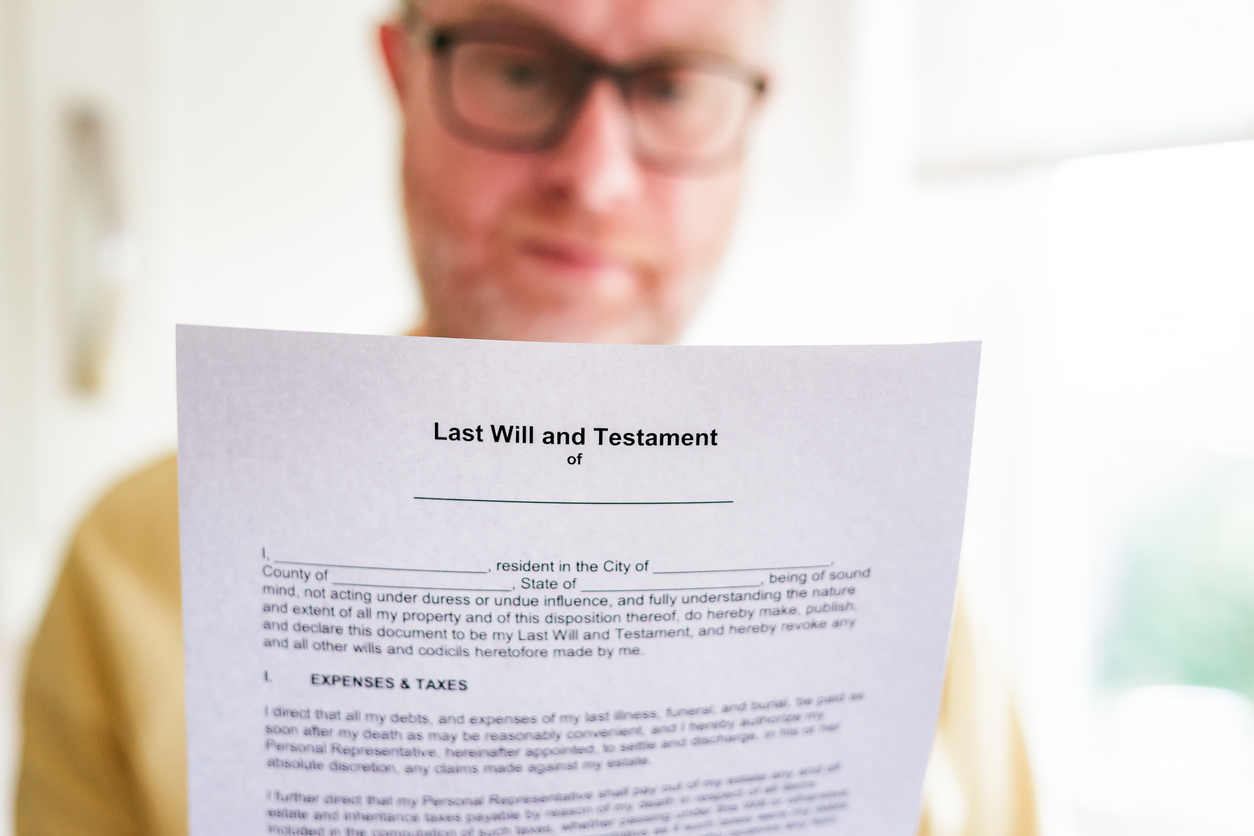Your Will Is Not an Unchanging Legal Document
Estate planning is a critical process that everyone should take seriously, and creating a will is one of the most important parts of that process; however, it’s important to recognize that this isn’t a “one and done” activity. As your life changes, so must your estate plan — and there are key considerations for updating a will in Texas that everyone needs to understand.
Put simply, any significant life change warrants a review and possible update to this essential legal document. Such events include marriages, divorces, having a child, losing a loved one, acquiring assets, paying off debts, or simply changing your mind about how your estate should be handled. When any of these events happens, the following are important considerations to keep in mind.
Make Sure to Follow the Legal Formalities
There are very specific legal requirements that must be met when updating a will in Texas. Some people may ask, “Can’t I just alter the will I wrote for myself that I keep in my bedside table?” This question raises a few concerns from the start. First, while handwritten wills are allowed in Texas — and don’t require witnesses — they are more at risk for being challenged in court.
In order to ensure your will is legally valid and minimize the potential for challenges, it’s best to create a formal will that is notarized and signed in the presence of witnesses. Even if you already chose this route, a decision to update the will requires either a formal codicil or a brand new will. The codicil may be easier, but it still needs to meet the same requirements as the original will.
Consider the Impact of Community Property Laws
Those who have a spouse need to recognize how Texas’ community property laws affect their property. In the Lone Star State, community property laws mean that marital assets are jointly owned by both spouses.
This means that in some cases, a person does not have the legal right to distribute shared property without their spouse’s consent. They can only leave their half of the property and any separate assets to others. This is why married individuals should discuss their plans with their spouse and make sure any updates will achieve what they have in mind in light of community property laws.
Use Clear Language
Using clear language both in the creation of your will and when updating it is absolutely critical. Avoid any vague or ambiguous terms that could lead to confusion. Unclear language in your will that leaves intent open for interpretation is an invitation for legal challenges in probate court.
If you didn’t have an attorney help with your initial will creation, it’s a good idea to have one review the document now. Even if you only plan on updating certain parts of your will, a legal professional can ensure the rest of the document is clear and unambiguous.
Review Your Executor
When someone thinks of the key considerations of updating a will in Texas, they often overlook the importance of their choice in executor. This individual may or may not be receiving any assets that are controlled by the will. Even when significant life changes occur, one may question why they would need to update their executor when they only want to change the terms of their will that control distribution of assets.
In many cases, updating the executor will not be necessary; however, it’s always a good idea to consider whether your initial choice is still suitable to serve in the role or is no longer a good fit. While this individual may not be receiving an inheritance, they are the ones who will manage and settle your estate. You want someone who is reliable and capable in this role.
Review Decisions Made for Minor Children
If a person has children after the initial creation of their will, they will likely need to update the document; however, even individuals who have already included their children in their will should periodically review the initial terms they created.
This is particularly critical for your guardianship designation. The guardian is the person who will care for your children if you pass on. Unfortunately, unexpected situations arise. Perhaps your initial choice is no longer around, or maybe your relationship isn’t as strong as it once was.
Whatever the situation, reviewing the decisions you made for your children is a key consideration whenever updating your will in Texas. It’s ideal to have an attorney review the document to ensure everything is clear, concise, and legally valid.
Do You Need an Attorney?
American citizens have an abundance of rights, and one of these rights is to handle their own legal issues. No one is required to hire an attorney to create their estate planning; however, failing to do so when updating your will can be a major mistake. Estate planning law is extremely complex, and the combination of new statutes and emerging technologies means it can change significantly over time.
When a will is going through probate, it must meet all necessary requirements for validity. Judges aren’t going to look at an invalid will and say, “Well, we know what they were trying to say – so let’s just go with it.” Even the simplest errors can make portions of the document — or the entirety of it — unenforceable.
At Rainey & Rainey, Attorneys at Law, our attorneys will help you understand the key considerations for updating your will in Texas. Contact us at 254-457-5083 and we’ll help ensure your estate plan is in order.


